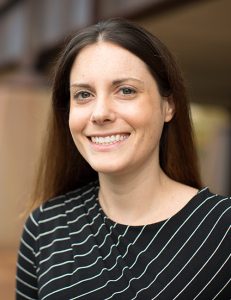Spring 2017 Semester
Tuesday, April 18, 2017 from 4:00-5:30 pm, Kiva Auditorium in Ritter Annex
Nancy H. Hornberger, University of Pennsylvania, Graduate School of Education, Educational Linguistics Division
Title: Teaching the Continua of Biliteracy
Abstract: The continua of biliteracy model offers an ecological framework in which to situate research, teaching, and language policy and planning in multilingual settings. Biliteracy is defined here as “any and all instances in which communication occurs in two (or more) languages in or around writing” and the continua depict the complex, fluid, and interrelated dimensions of communicative repertoires; it is in the dynamic, rapidly changing and sometimes contested spaces along and across the continua that biliteracy use and learning occur. The continua of biliteracy model was formulated in the context of a multi-year, comparative ethnography of language policy beginning in 1987 in two Philadelphia public schools and their respective communities. In the years since it was first proposed, the model has served as heuristic in research, teaching, and program development locally, nationally, and internationally in Indigenous, immigrant and diaspora language education contexts. In this talk, I highlight recent experiences in Indigenous contexts of South Africa, Sweden and Peru where the continua of biliteracy model has informed bilingual program development and Indigenous and second language teaching.
Bio: Dr. Nancy H. Hornberger is Professor of Education at the University of Pennsylvania, USA. Prolific author and editor, her research interests include anthropology of education, bilingualism and biliteracy, language policy and Indigenous language revitalization. She teaches, lectures, and consults on multilingual language policy and education for Indigenous and minoritized populations in the U.S. and throughout the world.
Thursday, February 16, 2017 at 4:00-5:00 pm, Kiva Auditorium in Ritter Annex
US Department of Education, Office of Civil Rights
Title: Access to Education Rights of English Language Learners (ELLs)
Abstract: What responsibilities do schools have in providing equal education opportunities to ALL students? How are violation complaints filed to the Office of Civil Rights? And, what happens once they are? Find out how the Office for Civil Rights enforces Title VI, equal access to education, in public institutions to ensure that their programs serve all students effectively. Presenters will share experiences and outcomes from investigated cases involving discrimination complaints filed on behalf of ELLs in Philadelphia and surrounding areas.
Bios:
Lucy Glasson has been an attorney with the U.S. Department of Education, Office for Civil Rights (OCR) in Philadelphia since November 2008. Before joining OCR, Ms. Glasson spent seven years in private practice at law firms in Philadelphia and Boston, and served as a judicial clerk on the United States Court of Appeals for the First Circuit. Ms. Glasson earned her J.D. from Yale Law School in 2000 and graduated from Bates College in 1997 with an undergraduate degree in history.
Born in Easton, PA, Michael Wesley earned his Bachelor’s degree in Secondary Education (Social Studies concentration) with honors from Kutztown University, in 1992. He joined the Office for Civil Rights (OCR) in 1994, after serving for two years as a long-term substitute teacher for several school districts in the Lehigh Valley area. He is a senior level Equal Opportunity Specialist for the Philadelphia OCR office. He has investigated both complaints and compliance reviews, concerning a variety of educational equity issues – including the provision of services to English language learners. Michael was the facilitator for the office’s Teacher Preparation proactive initiative. He coached a 4th-8th grade girls CYO Track and Field team for four years, and was an assistant coach for a community flag football team for one year. His interests include running, traveling, cartooning, and home brewing. Michael spends most of his spare time volunteering as a swim official and watching his twin sons compete at their high school and YMCA club swim meets.
Wednesday, March 1, 2017 at 3:30 pm, Walk Auditorium
Alexandre Duchêne, University of Fribourg, Switzerland & ARC Distinguished Visiting Professor, The Graduate Center, CUNY
Title: Language Investment and Political Economy
Abstract: The notion of language investment has been the object of considerable scientific interest since the 1990s, particularly within the field of applied linguistics. This concept has facilitated a more nuanced understanding of the speaking subject’s motivation to learn and practice languages, while foregrounding issues of agency, linguistic capital and identity. In this talk I would like to engage with the variability of language investment and propose a political-economic approach of this notion, by examining the structural and institutional conditions under which language investment may or may not take place. I will draw on data generated during ethnographic fieldwork focused on state agencies responsible for monitoring unemployment and providing job placement for the unemployed in Switzerland. I will show that the investment of unemployed individuals in language learning processes is confronted to institutional mechanisms in which the incentives for taking language courses, as well as the limitations of access to such courses, are linked to a logic of return on investment. In analysing the decision-making processes involved in the allocation of different degrees of access to the labour market, I will demonstrate that investment in languages is reconceptualised in terms of employability. As a result of this shift, certain unemployed individuals are maintained in subaltern positions by being deprived of access to the linguistic resources in which they seek to invest, thereby dashing their hopes of professional mobility and institutionalising the ideological construction of linguistic deficit. The emphasis placed on employability also contributes to creating the illusion that investment in language would de facto be economically convertible. These analyses will lead me to argue that the idea that language investment is strongly related to agency and individual willingness must be tempered by a critical requestioning on this notion in light of the structural contingencies in which such investment takes place.
Bio: Dr. Alexandre Duchêne, is a Professor of the Sociology of Language and Head of the Department of Multilingualism Studies at the University of Fribourg. His research focuses on language and social inequalities, language and political economy and on the division of labor in late capitalism. He is co-Chair of the Committee on World Anthropologies of the American Anthropological Association. His recent publications include Language in Late Capitalism: Pride and Profit (with Monica Heller, 2012, Routledge); Language, Migration and Social Inequalities (with Melissa Moyer and Celia Roberts, 2013, Multilingual Matters), Mehrsprachigkeit verwalten? Spannungsfeld Personalrekrutierung beim Bund (with Renata Coray, Emilienne Kobelt et al.., 2015, Seismo Verlag) and Spéculations langagières (with Michelle Daveluy, 2015, a special Issue on the journal Anthropologie et Sociétés). He is currently the Principal Investigator of a Swiss National Science Foundation (SNF) research project entitled: A web of Care: Linguistic resources and the management of labour in the healthcare industry (2015-2018).
Monday, March 6, 2017, 3:30 pm in Walk Auditorium (1st floor Ritter Hall)
Jonathan Schmidgall, Educational Testing Service (ETS)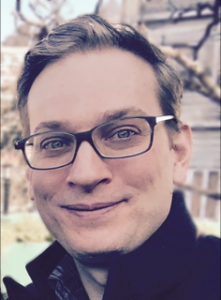
Title: Comprehensibility: A Conceptual Model
Abstract: Second language learners and teachers have increasingly viewed intelligibility or comprehensibility as the goal of attainment, rather than native-like proficiency. But how is comprehensibility determined for second language speakers?
Research investigating oral language use has increasingly viewed it from an interactionalist perspective, which argues that oral communication is co-constructed by speakers and listeners and influenced by contextual factors. Listener perceptions of a speaker’s oral language use, or a speaker’s comprehensibility, may be influenced by a variety of factors associated with the speaker, listener, and context. Factors related to the speaker include aspects of the speaker’s proficiency in the target language (e.g., pronunciation, grammatical accuracy) and domain-related skills (e.g., teaching skills). Listener factors may include proficiency in the target language, attitudes towards the speaker, familiarity with the speaker’s native language or accent, familiarity with the speaker’s topic, and familiarity with non-native speakers or speech in general. Finally, a variety of contextual factors may play a role including the norms of interaction, speech form and content, and purpose of communication. Although previous research has identified many of these factors, none of the studies reviewed have attempted to integrate many of these factors into a larger conceptual model. Research that has examined the relationships between several of these factors has been limited by small sample sizes, constrained or inauthentic speech samples, and homogenous groups of speakers or listeners.
I will describe a research study that proposed a conceptual model that specified speaker- and listener-based factors that may influence comprehensibility within a specific oral language use domain, and evaluated the model using structural equation modeling. The conceptual model evaluated by this study may be viewed in several different ways: first, as an interactive model of oral language use centered on listener perceptions of the speaker; second, as a more specific form of a general model of the relationships between teacher-based factors (in this case, international teaching assistants) and student-based factors (undergraduate students) in classroom communication.
The results of this study support an interactional perspective on oral language use which holds that both speaker- and listener-related factors influence comprehensibility. This has theoretical and practical implications for language assessment, language learning, and education policy.
Bio: Jonathan Schmidgall is an Associate Research Scientist in the English Language Learning and Assessment research center at ETS. He has conducted and coordinated validation research for local and international high-stakes language assessments, including UCLA’s Test of Oral Proficiency and ETS’ TOEIC tests. His research has focused on defining constructs, test design for summative and formative purposes, the use of technology, and designing ‘real-world’ validation studies. He received his Ph.D. in Applied Linguistics from UCLA and a certificate in Advanced Quantitative Methodology in Educational Research from the U.S. Department of Education in 2013. He was a recipient of the Jacqueline Ross dissertation award (2014) and ILTA’s Lado award (2013) for his dissertation which explored the relationship between oral proficiency and comprehensibility.
Fall 2016 Semester
Tuesday, September 13, 2016 at 3:30 pm, 1810 Liacouras Walk, Presidential Conference Suite
Dr. Rhonda Oliver, Curtin University, Australia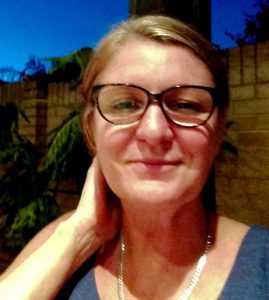
Title: Translanguaging: Using technology enhanced environments to develop multilingual competence
Abstract: While educators can be reluctant to use online texts in their teaching, it is the most favoured way for today’s youth to communicate and to learn about other people and other places. In this study, we explore how Aboriginal multilingual speakers use technology-enhanced environments, specifically Facebook, for their translanguaging practices. Using data collected from Facebook posts written by seven Aboriginal youth over a period of 18 months, we investigate how the participants move between Aboriginal English (AE) and Standard Australian English (SAE) creatively and strategically to express humour, identity as an Aboriginal person and group membership. We also observe how these practices enhance rather than detract from their development of SAE. The findings of the study have important implications for teaching bilingual and bidialectal speakers in general and AE speakers in particular, highlighting the importance of creating a translanguaging space to enable them to maximise their knowledge and understanding of different subject matter and develop competencies in their various linguistic codes. Finally we suggest that this medium for learning, particularly for Indigenous students, is a vital step for future educational practice.
Bio: Dr. Rhonda Oliver is a Professor in the School of Education at Curtin University, Australia. Her dissertation research, published in Studies in Second Language Acquisition in 1995, was the first empirical study of recasts and L2 learning and described this and other forms of negative feedback in 96 dyads of 8- to 13-year-old ESL children. She is an active researcher with an extensive publication list and strong track record of language and education research. Her work has appeared in a number of international journals, such as Australian Review of Applied Linguistics, Language Learning, Modern Language Journal, Studies in Second Language Acquisition, System, and TESOL Quarterly. Professor Oliver’s current research continues to focus on second language acquisition, with studies of face-to-face and online interactions, large scale studies on International and Indigenous university students, and research on migrant and Aboriginal children acquiring English as a Second Language/Dialect.
September 28, 2016 at 3:30pm in Walk Auditorium
Dr. Beth A. Wassell, Ed.D. , Rowan University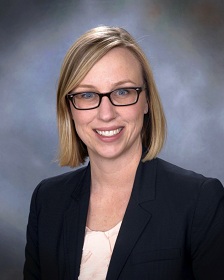
Title: Words & Actions: Teaching Language through the Lens of Social Justice
Abstract: In this talk, I argue that issues of social justice can and should be regularly addressed by language teachers in their classrooms – not as an incidental, ad hoc part of classroom life, but as a central, driving force of language teaching. By focusing on an approach that emphasizes critical consciousness and action, we could prepare students not only to speak and write in another language, but to employ a lens of critical consciousness as a way of thinking about the world. As language teachers, we have an obligation to meet students at their individual starting points, carefully bringing students’ own complex and multifaceted identities into the curriculum. In this talk, I provide a framework for building on students’ identities and teaching for and about social justice in ESOL, EFL, and World Languages classrooms. This framework provides a foundation for curriculum, teaching, and assessment that moves beyond language to skills that are broader, deeper, and more firmly rooted in the lives of our students and the realities of the world today.
Bio: Dr. Beth Wassell received an Ed.D. from the University of Pennsylvania in Teaching Learning & Curriculum, an M.A. from the University of Central Florida in Spanish, a graduate certificate in TESOL from the Pennsylvania State University and a B.A. from Rowan University in Spanish and Secondary Education. She joined the College of Education at Rowan University in 2004 and is Professor in the Department of Language, Literacy and Sociocultural Education. She is currently coordinator for the undergraduate world language education program, the graduate level English as a Second Language Certificate of Graduate Study (ESL COGS) program, and the Bilingual/Bicultural program. Dr. Wassell teaches a variety of courses related to language teaching and learning and multicultural education.
Dr. Wassell’s research focuses broadly on three areas: the intersection of linguistically diverse families, communities and teacher education; bilingual students’ experiences and learning in Science Technology, Engineering and Mathematics (STEM) classrooms; and other issues related to world language teacher education and preparing teachers for work with culturally and linguistically diverse learners. She has published articles in journals such as TESOL Journal, Teaching and Teacher Education, Education and Urban Society, the Journal of Technology and Teacher Education, Teacher Education and Practice, and Cultural Studies in Science Education. Her most recent book, Words & Actions: Teaching World Languages through the Lens of Social Justice, co-authored with Cassandra Glynn and Pamela Wesely, was published in 2014 by ACTFL. She also regularly provides consulting and professional development for in-service teachers in the region.
Prior to coming to Rowan, Dr. Wassell taught Spanish as a world language at the elementary and high school levels in Florida and New Jersey and English to Speakers of Other Languages (ESOL) to adults in Philadelphia. You can access her Curriculum Vitae here.
Tuesday, Oct 4, 2016, 2:30 pm, Kiva Auditorium
Dr. Katherine Kinzler, Ph.D., Cornell University, hosted by the Temple University Departments of Spanish & Portuguese, Psychology, and Neuroscience
Title: Linguistic Diversity Marks Social Groups and Facilitates Interpersonal Communication
Abstract: Beyond the literal content it provides, language conveys social meaning. My research explores the developmental origins of humans’ thinking about language as a social category. Children judge others based on their speech, and in some cases social attention to language and accent can surpass attention to race. Yet, while linguistic diversity may cause social divisions, it can also facilitate social understanding: children exposed to diverse linguistic environments exhibit more effective social communication skills than children in monolingual environments.
Bio: Dr. Katherine Kinzler is an Associate Professor in the Departments of Psychology and Human Development at Cornell University. Prior to joining the faculty at Cornell, she was an Associate Professor at the University of Chicago Department of Psychology. She completed her Ph.D. at Harvard in Psychology and her B.A. at Yale in Cognitive Science, and she was a Fulbright Scholar at the École Normale Supérieure in Paris. Her research is funded by the National Institutes of Health.
November 2, 2016, 2:30pm, Kiva Auditorium, Ritter Annex
Dr. Karen Emmorey, San Diego State University
Co-sponsored by Temple Institute for Learning and Education Sciences (TILES) and Temple University’s Neuroscience Program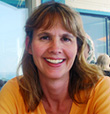
Title: The Bilingual Bimodal Brain
Bio: Dr. Emmorey’s research focuses on what sign languages can reveal about the nature of human language, cognition, and the brain. She studies the processes involved in how deaf and hearing people produce and comprehend sign language and how these processes are represented in the brain.
If you have any questions, please contact Mia Velazquez at mvelazquez@temple.edu.
November 16, 2016, 3:30 pm, Kiva Auditorium, Ritter Annex
Dr. Paul Deane, Ph.D., Natural Language Processing and Speech Group at Educational Testing Service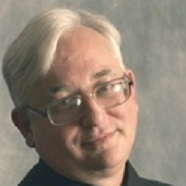
Title: What Automated Essay Scoring Measures
Abstract: Automated essay scoring (AES) has been widely adopted to support large-scale direct writing assessment. AES engines typically perform well, if we evaluate their results statistically: they tend to correlate with human raters at least as well as other raters correlate with one another. On the other hand, the use of AES systems has been heavily criticized. Part of the criticism focuses on the fact that automated scoring, if used alone, makes writing assessment less like authentic writing situations, where the communicative purpose is central. Other criticisms focus on the features used by AES systems, and argue that they fail to measure important parts of the writing construct. In this talk, I will present an overview of automated essay scoring, and will explore what AES systems measure effectively, along with their limitations. I will argue that AES systems are particularly effective at measuring fluency and accuracy of text production and the richness and sophistication of language. Given the limitations of current systems, AES should not be used without human ratings to evaluate rhetorical effectiveness or the quality of ideas. I will argue, further, that one of the most effective potential uses of AES would be to monitor progress in written language fluency, or to provide feedback to second-language writers.
Bio: Dr. Paul Deane is a Principal Research Scientist in the Natural Language Processing and Speech Group at Educational Testing Service. He received his Ph.D. in Linguistics from the University of Chicago in 1987. His primarily research interests focus on reading, writing, and vocabulary assessment, automated essay scoring, and support for learning based on the cognitive and learning sciences. He is currently working on innovative designs for assessment in the English Language Arts and the use of automated methods, including keystroke log analysis, to support writing assessment.
